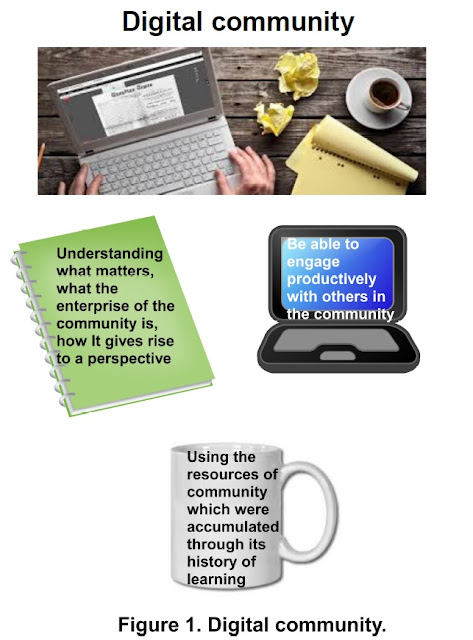Reflection on Alec's seminar
As a
continuation of my previous blog and reflection on the lecture of Alec Couros,
there are different ways to collaborate. The way of how we collaborate depends
on our personality. Wenger reports several concepts of communities of practice
[1]. However, these concepts were discussed only once, and the description is
so complicated that you start to think “how heavy the collaborative learning
can be when you implement the author concept”. The singing students from Alec’s
seminar evoke completely different thoughts about collaborative learning. Based
on Siemens notes [2], the learner interactions can be viewed as four stage
process:
- Communication
- Collaboration
- Cooperation
- Community
Alex
firstly communicated with the course participants about how they are going to
participate. They collaborated through the singing a song. Collaboration means
working alongside someone to achieve the final goal. Cooperation means making
partners more able to do something. It is difficult to say if the common song
of Alec’s student was a collaboration or cooperation as we don’t know the
background and personality of participants. In most cases, we start out as a
cooperative group and shift into a collaborative group over time. Both
cooperation and collaboration form the community which consists of members
striving for a common purpose [3]. Alec’s
approach for the online learning demonstrated that clear instructions,
transparency of expectations, teacher’s intrinsic motivation, sufficient time
for the task and great interest of participants are the key factors influencing
the effective collaboration in the coursework. When I look into my own
presentation of the Wenger’s idea, I think that the complicated definitions and
broad philosophic discussions don’t play a key role in our PBL5 collaborative
work.
We should select maybe more simple and obvious tools to reach our group
goal in the learning journey.
References:
[1] Wenger, E. (2010). Communities of practice and
social learning systems: the career of a concept. Social learning systems
and communities of practice (pp. 179-198). Springer London.
[2] Siemens, G., M. (2005). Connectivism: Learning
theory for the digital age. International Journal of Instructional Technology
and Distance Learning, 2(1).
[3] Capdeferro, N. & Romero, M. (2012). Are Online
Learners Frustrated with Collaborative Learning experiences? The
International Review of Research in Open and Distributed Learning, 13(2).

Comments
Post a Comment